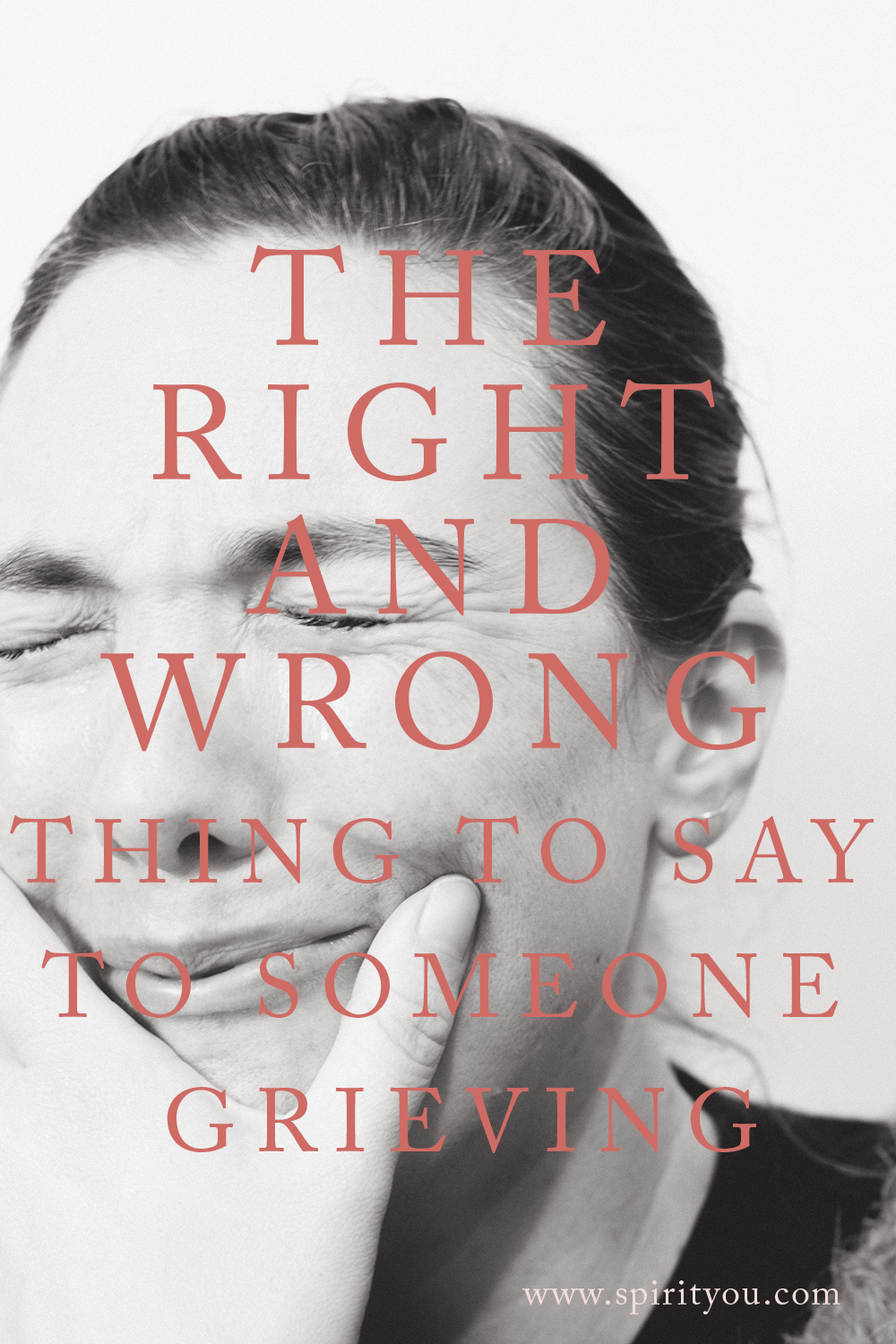
THE RIGHT AND WRONG THING TO SAY TO SOMEONE GRIEVING
When my Dad died, I noticed something strange. Suddenly people stopped knowing how to communicate and at worse offered formal and generic phrases. Months later I found myself in the exact same place, frozen underneath a facebook post, unable to string together a sentence for a friend who had just lost someone. I didn’t want to hurt the person by misspeaking or being insensitive. I didn’t want to make any assumptions or make things worse. The funny thing is though when you lose someone you’re in a place that needs real human connection. A year after Dad died, I thought it would be helpful to have a quick go-to guide, a reminder to dig a little deeper and avoid some traps. I make no claims this is an easy area to navigate, grief is real and pushes folk to extreme sensitivities but I believe we can create better exchanges in times of grief 🙂 So below is my guide to offering more personal, appropriate and kind message of comfort to others and knowing that some moments are inconsolable and that’s okay. Just remember in extreme sadness, not to try to make someone feel better, their grief can’t be “fixed” and by attempting can simply feel like you’re minimising their experience.
THINGS TO AVOID: The wrong things to say
1/ Generic Message of Support
“So sorry to hear” “I hope you and your family are okay”
The sentiment is super kind but after hearing it a lot, it tends to lose meaning. Be mindful that the person grieving has heard this multiple times and will probably respond with an equally generic message. I’d also consider not addressing the family as a whole unless the person in grief has expressed the impact upon the family. In my moment of loss, I was purely focused on the connection between my Dad and the grief I felt in the absence of that. The complex nature of families means there may be estrangement which opens a potential mind field of hurt.
2/ Hard Questions
“Are you okay?” or “How are you doing?”
These questions are ridiculously hard to answer. If you know someone has been through something terrible, then it’s probably safe to assume they’re not okay. I found myself composing my own generic auto-response to be able to deal with the question. I said, “I’m okay in a not okay situation”.
3/ Sharing Your Own Views on the After Life
Unless you know that your values overlap with the person, this can get you into some murky water. There’s a time and place for those discussions just not in the midst of grief. If the grieving individual asks, then it’s definitely a wide-open discussion.
4/ Talk About The Future
The future is really difficult. If you do say something about the future, acknowledge it, and have a discussion with the grieved person. You can always say, “I’m so sorry they left so early and you’ve been robbed of those later memories”.
5/ Be Weary of Being Light-Hearted
This is super hard and don’t worry if you fall short here. I remember my partner, the days after Dad died, pointing out a billboard of old people on a retirement sign and having a joke. My brain instantly went to my Dad who wasn’t able to retire and I started to think about the future and him not being in it. If you’re the grieved person, point out why that made you sad and a simple apology should fix everything.

meaningful condolences: better things to say
1/ Don’t be afraid to acknowledge their grief
One friend was unsure of what to say to me. He chatted with another friend who asked, “well what do you really want to say?” and he responded back “that the situation sucked”. It was one of the best comments I received because you know what, someone dying does suck! You don’t need to wrap your words in p.c. cliched sentences, just be real and communicate how you normally would with that person. Acknowledging grief and what the person is going through is a helpful thing.
2/ Don’t be afraid to get personal
Some of the best messages I recieved were from people that didn’t even know my Dad but reflected upon my own personality and how they could only imagine my Dad was like me and how sad that it was for him to be gone. These messages felt really genuine, I felt their love and support much more then a genetic phrase even if the love and kindness, behind both messages, were the same.
3/ If words or emotions aren’t your thing, offer something solid
I had a photographer friend message me that he would pick up any shoots I had and another friend offer to bring vegan meals over. Get really specific with your offer, something that actually might be helpful. I didn’t take either up but the offers made me feel very loved.
4/ Let them respond and go off their lead
Let the grieved person dictate the direction. If they ask for some guidance, then feel free to offer but be careful with outright stating your own opinion.
5/ Talk about positive attributes and memories
If you do know the living and the deceased well, it’s a lovely thing to talk about positive attributes and memories. It’s a strange world when your grief is consuming everything around you and yet those close avoid acknowledging the person who has passed. Memories help keep them alive for a little longer. If there is a genuine concern that the memories are too painful, just ask the person in grief, if they are okay to talk and share. You can always come back to these conversations later by letting let them know you are always there for them if they want to share.
Try Saying
“Do you want to talk about (the individual who has passed)? Or would you like some conversation to distract you? Or would you like some space?”
I wrote this guide from some notes I typed up after Dad’s death. As I typed them up, they felt simple and silly but the pattern of communication was too consistent to ignore. Now that I’m out of the initial deep grief stage, I’m back to being someone that struggles to communicate with those who have lost someone close. I hope this guide finds some value outside my own little bubble of experience.
–
Want to see what else I do? Come peek over on my insta or grab a freebie when you sign up to my newsletter below 🙂 🙂
































